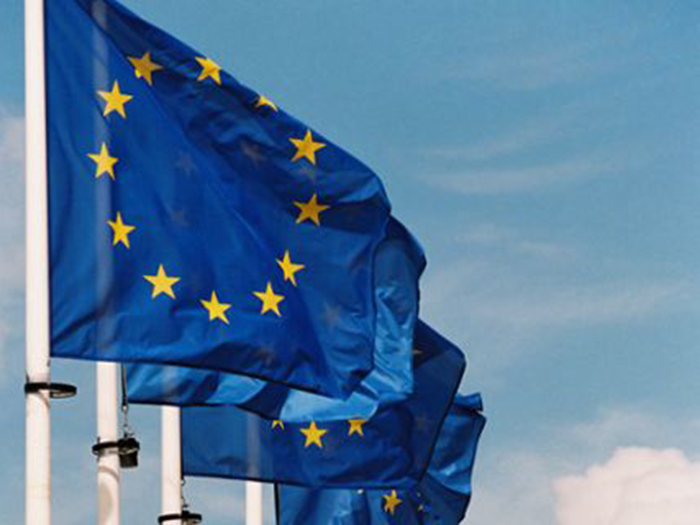
While the UN’s International Maritime Organization continues to dither on shipping’s proposals to fund maritime decarbonization using some sort of levy on carbon, the European Union is taking a very different approach — by earmarking revenues from the EU’s Emissions Trading System (ETS) for shipping.
The European Parliament this week formally approved a reform to the ETS that, for the first time, brings aviation and maritime into the ETS — an emission cap-and-trade system where a limited amount of emission allowances – the cap – is put on the market and can be traded. Under the reform, all emissions emitted by vessels of any flag calling at an EU port for voyages within the EU, as well as 50% of emissions from voyages that start or end outside the EU, and all emissions at berth in EU ports, will come under the ETS umbrella, though there are special provisions for ice-class vessels, small islands and outermost regions.
Significantly, the parliament also voted to include methane and nitrous oxide in addition to carbon dioxide the emissions package, something which had not been included before.
Here’s what’s to like in all this.
The European Community Shipowners Association (ECSA) welcomed the new EU ETS law because it earmarks about EUR 2 billion of the revenues in the Innovation Fund supported by the ETS for maritime, to support the uptake of clean fuels and foster innovation.
“Addressing the climate crisis and decarbonizing shipping is not a question of ‘if’ but a question of ‘how’. Setting aside part of the ETS revenues for maritime is a victory for the energy transition of the sector. Dedicated support through the Innovation Fund is indeed key to bridge the price gap with clean fuels,” says Sotiris Raptis, ECSA’s Secretary General.
ECSA also welcomed the upholding of the “polluter-pays principle” through mandatory requirements for the pass-through of the EU ETS costs to the commercial operators of vessels. The phase-in period and the gradual inclusion of emissions from shipping over a three-year period is also crucial to ensure a smooth transition for the sector, says ECSA.
While the new ETS marks an important step in the decarbonization of the industry, sufficient amounts of low- and zero-carbon fuels will need to be available at an affordable price to maintain the industry’s global competitiveness, notes ECSA. This should be a top priority of the EU’s proposed Net Zero Industry Act. As shipping is one of the most difficult to decarbonize sectors, the upscaling of affordable low- and zero-carbon fuels and technologies for the sector is key.
“Shipping being a cornerstone of Europe’s energy and supply chain security, this must be properly reflected in the strategic priorities of the new Net Zero Industry Act. For this reason, we welcome the inclusion of offshore renewable technologies and carbon capture and storage in the list of strategic net-zero technologies. In addition, renewable fuels of non-biological origin (RFNBOs) should be included in the Act, so that dedicated production capacity can be swiftly developed,” added Raptis.
Reference: www.marinelog.com


Thank you for providing a positive and constructive space for discussion It’s refreshing to see a blog with a kind and respectful community
This blog is such a hidden gem I stumbled upon it by chance and now I’m completely hooked!
If some one wishes to be updated with hottest technologies then he
must be pay a quick visit this web site and be up to date all the time.
WOW just what I was looking for. Came here by searching for clothing